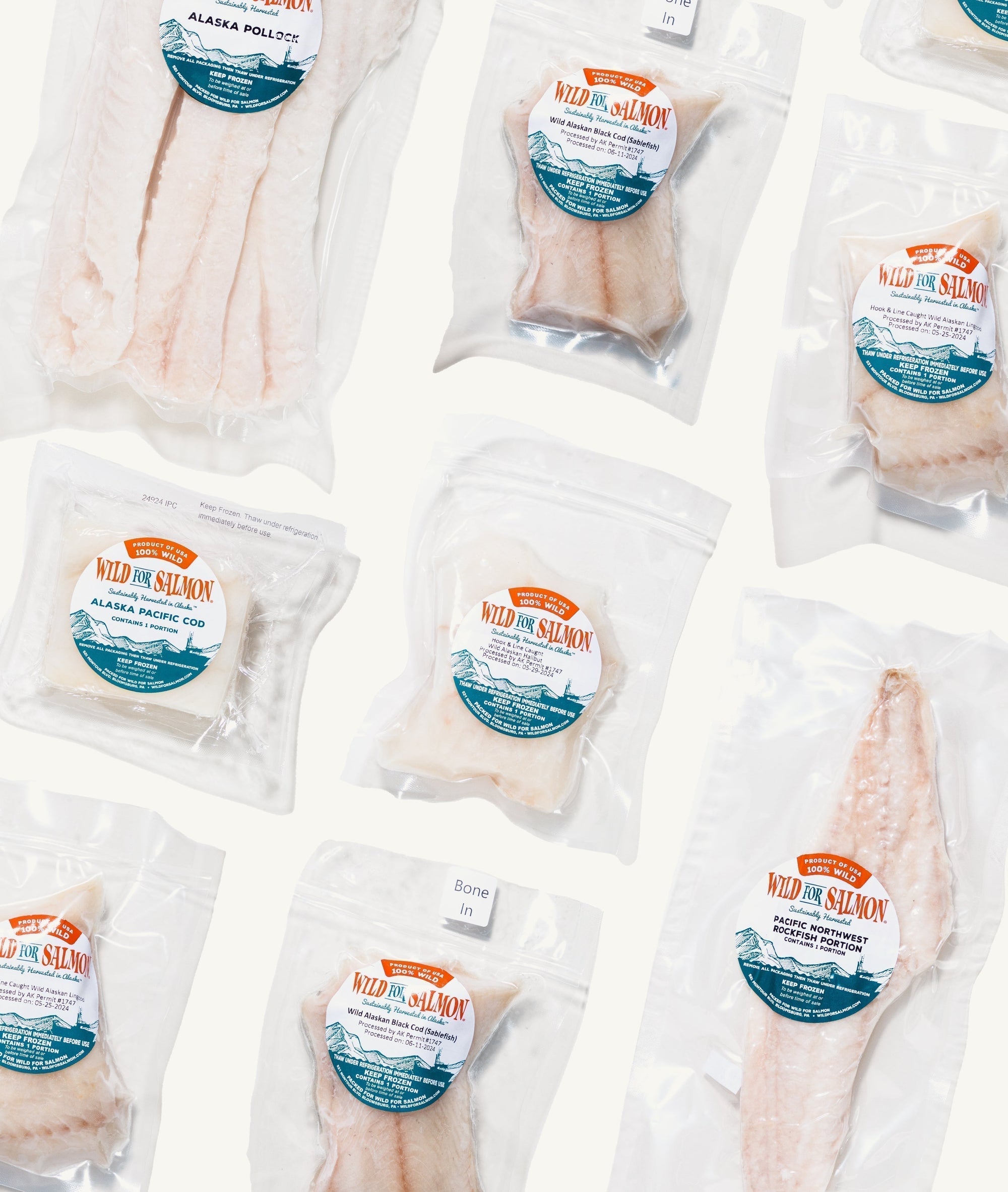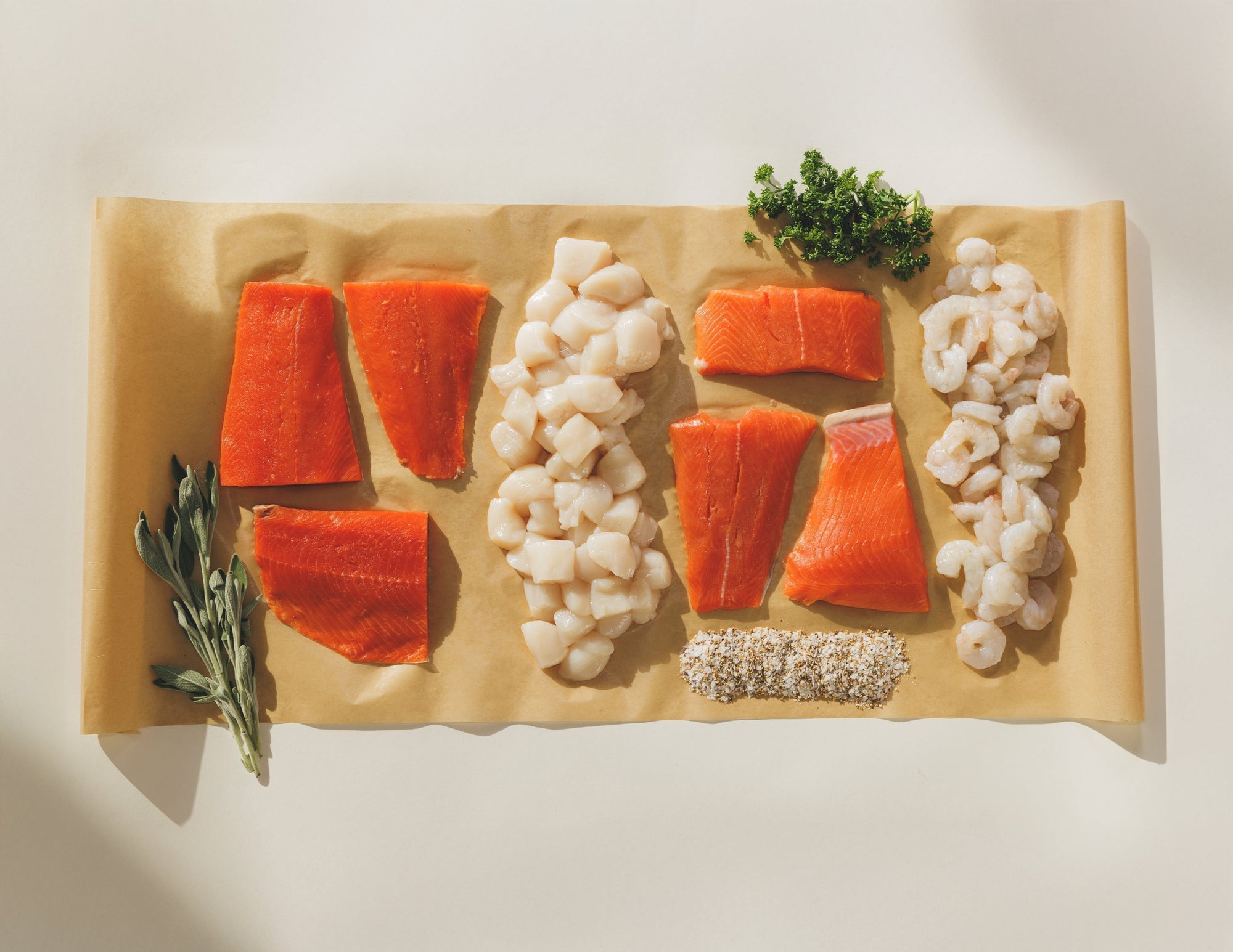How to Cook Wild Salmon for Maximum Flavor and Nutrition
At Wild for Salmon, we’ve always believed that good food should nourish — body, mind, and planet. That’s why we’re proud to offer wild-caught seafood that’s as rich in nutrients as it is in flavor.
But one question we often hear in our shop is:
“Does how I cook my fish affect its nutrition?”
The short answer: of course.
The long answer: not as much as you might think especially when you start with the right fish.

The Science of Healthy Seafood
It’s no secret that seafood is one of the healthiest proteins on the planet. The American Heart Association recommends at least two servings of fish per week, particularly fatty fish like wild salmon, albacore tuna, or herring. These species are naturally rich in omega-3 fatty acids the essential fats that support heart health, brain function, and overall wellbeing.
And here’s the good news: no matter how you cook it, fish remains an exceptional source of vitamins and minerals. According to Seafood Health Facts — a collaborative research project between several U.S. universities —
“With most cooking methods, vitamin retention in cooked seafood is greater than 85%, and retention of important minerals is 100%.”
That’s something worth celebrating. You’re already making the right choice when you fill your plate with wild-caught salmon.

Check out this insta-pot steamed salmon with peanut sauce recipe from Alaska Seafood.
Cooking Methods: What Preserves the Most Nutrition
When it comes to cooking, gentle heat is your friend. As Men’s Health summarized,
“Lower-heat, moisture-based cooking methods such as poaching and steaming are better at preserving the nutritional qualities of the fish than high-heat methods like drying and grilling.”
Moisture-based methods — think poaching, steaming, or baking en papillote — help lock in those heart-healthy omega-3s. High-heat methods like frying or grilling can reduce them slightly, but because wild Alaska salmon has such a naturally high concentration of omega-3s, you’ll still get plenty of benefit, however you prepare it.
(Want inspiration? Try this Instant Pot Steamed Salmon with Peanut Sauce from Alaska Seafood — a simple, nourishing weeknight favorite.)
What to Add (and What to Skip)
Wild salmon doesn’t need much — its flavor speaks for itself. A squeeze of lemon, a handful of herbs, a touch of salt — done.
Because salmon is already a rich, fatty fish, you don’t need to add much oil or butter. As WebMD reminds us:
“Because salmon is a rich fish, the best preparation methods are those that add little or no fat.”
If you’re watching your sodium intake, you may want to skip smoked or canned fish, which naturally contain more salt from curing or preservation. Instead, pair your salmon with:
-
Fresh herbs — dill, parsley, cilantro, or fennel
-
Bright citrus — lemon, lime, or orange zest
-
Whole grains — quinoa, brown rice, or farro
-
Seasonal vegetables — asparagus, spinach, kale, or roasted carrots
Simple, clean, and full of life — that’s how wild fish was meant to be enjoyed.
A Word on Balance
Whether you bake, grill, or poach your salmon, the most important thing is this: you’re choosing real food from a wild place.
Our salmon is caught in the cold, pristine waters of Bristol Bay, Alaska, frozen at the peak of freshness, and brought straight to your table. No additives. No shortcuts. Just pure, nutrient-dense, sustainable seafood — the kind your body recognizes and thanks you for.
Wild for Salmon’s Favorite Healthy Cooking Methods
| Cooking Method | Benefits | Best For | Pro Tip |
|---|---|---|---|
| Steaming | Preserves 90%+ of nutrients | Quick dinners | Add fresh herbs and citrus to the steam water for aromatics |
| Poaching | Gentle and heart-healthy | Delicate fillets | Use broth or white wine for depth of flavor |
| Baking | Even heat, easy cleanup | Family meals | Wrap salmon in parchment to keep it moist |
| Grilling | Smoky flavor, crisp edges | Summer nights | Brush lightly with olive oil and flip only once |
| Pan-searing | Fast and flavorful | Weeknight dinners | Finish with a squeeze of lemon instead of butter |
Nourish Simply
Wild Alaska salmon is more than a meal — it’s a way to reconnect with real food. However you cook it, each bite delivers clean protein, essential omega-3s, and the story of a fish that lived freely in the cold, open ocean.
Pair it with simple ingredients. Cook it with care. Savor it fully.



